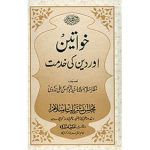قال ابن القيم – رحمه الله : في الذكر أكثر من مائة فائدة منها
1- أنه يطرد الشيطان ويقمعه.
2- أنه يرضي الرحمن عز وجل.
3- أنه يزيل الهم والغم عن القلب.
4- أنه يجلب للقلب الفرح والسرور والبسط.
5- أنه يقوى القلب والبدن.
6- أنه ينور الوجه والقلب.
7- أنه يجلب الرزق.
8- أنه يكسو الذاكر المهابة والحلاوة والنضرة.
9- أنه يورثه المحبة التي هي روح الإسلام وقطب رحى الدين ومدار السعادة والنجاة.
10- أنه يورثه المراقبة حتى يدخله في باب الاحسان، فيعبد الله كأنه يراه، ولا سبيل للغافل عن الذكر إلى مقام الإحسان، كما لا سبيل للقاعد إلى الوصول إلى البيت.
11- أنه يورثه الإنابة، وهي الرجوع إلى الله – عز وجل.
12- أنه يورثه القرب منه، فعلى قدر ذكره لله – عز وجل – يكون قربه منه.
13- أنه يفتح له باباً عظيماً من أبواب المعرفة.
14- أنه يورثه الهيبة لربه – عز وجل – وإجلاله، لشدة استيلائه على قلبه وحضوره مع الله تعالى؛ بخلاف الغافل فإن حجاب الهيبة رقيق في قلبه.
15- أنه يورثه ذكر الله تعالى له، كما قال تعالى: فَاذْكُرُونِي أَذْكُرْكُمْ . ولو لم يكن في الذكر إلا هذه وحدها لكفى بها فضلاً وشرفاً.
16- أنه يورثه حياة القلب.
17- أنه قوت القلب والروح، فإذا فقده العبد صار بمنزلة الجسم إذا حيل بينه وبين قوته.
18- أنه يورث جلاء القلب من صدئه.
19- أنه يحط الخطايا ويذهبها.
20- أنه يزيل الوحشة بين العبد وبين ربه تبارك وتعالى.
21- من ذكر الله تعالى عز وجل ذكره ربه، ولذكر الله أكبر.. قال تعالى: فَاذْكُرُونِي أَذْكُرْكُمْ.
22- أن العبد إذا تعرف إلى الله تعالى بذكره في الرخاء عرفه في الشده.
23- أنه ينجي من عذاب الله تعالى.
24- أنه سبب تنزيل السكينة، وغشيان الرحمة، وحفوف الملائكة بحلقات الذكر.
25- أنه سبب اشتغال اللسان عن الغيبة والنميمة والكذب والفحش والباطل.
26- أن مجالس الذكر مجالس الملائكة، ومجالس اللغو والغفلة مجالس الشياطين، فليتخير العبد أعجبهما إليه وأولاهما به، فهو مع أهله في الدنيا والآخرة.
27- أنه يسعد الذاكر بذكره ويسعد به جليسه، وهذا هو المبارك أينما كان.
28- أنه يؤمن العبد من الحسرة يوم القيامة.
29- أنه مع البكاء في الخلوة سبب لإظلال الله تعالى العبد يوم الحر الأكبر في ظل عرشه، وهذا الذاكر مستظل بظل عرش الرحمن – عز وجل.
30- أن الاشتعال به سبب لعطاء الله للذاكر أفضل ما يعطي السائلين.
31- أنه أيسر العبادات، وهو من أجلها وأفضلها.
32- أنه غراس الجنة.
33- أن العطاء والفضل الذي رتب عليه لم يرتب على غيره من الأعمال.
34- أن دوام ذكر الرب تبارك وتعالى يوجب الأمان من نسيانه الذي هو سبب شقاء العبد في معاشه ومعاده.
35- أن الذكر نور للذاكر في الدنيا، ونور له في قبره، ونور له في معاده يسعى بين يديه على الصراط.
36- لما كان الذكر متيسراً للعبد في جميع الأوقات والأحوال فإن الذاكر وهو مستلق على فراشه يسبق (في الفضل والخير) القائم الغافل.
37- الذكر يفتح باب الدخول إلى الله عز وجل، فإذا فتح الباب ووجد الذاكر ربه فقد وجد كل شيء.
38- في القلب خلة وفاقة لا يسدها شيء البتة إلا ذكر الله – عز وجل – فإذا صار القلب بحيث يكون هو الذاكر بطريق الأصالة، واللسان تبع له فهذا هو الذكر الذي يسد الخلة ويُفني الفاقة.
39- أن الذكر يجمع المتفرق ويفرق المجتمع، ويقرب البعيد ويبعد القريب، فيجمع ما تفرق على العبد من قلبه وإرادته وهمومه وعزومه، والعذاب كل العذاب في تفرقتها وتشتتها عليه وانفراطها له، والحياة والنعيم في اجتماع قلبه وهمه وعزمه وإرادته، ويفرق ما اجتمع عليه من الهموم والغموم والأحزان والحسرات على فوت حظوظه ومطالبه، ويفرق أيضاً ما اجتمع عليه من ذنوبه وخطاياه وأوزاره حتى تتساقط عنه وتتلاشى وتضمحل، ويفرق أيضاً ما اجتمع على حربه من جند الشيطان.
40- أن الذكر ينبه القلب من نومه، ويوقظه من سنته.
41- أن الذكر شجرة تثمر المعارف والأحوال التي شمر إليها السالكون.
42- أن الذاكر قريب من مذكوره، ومذكوره معه، وهذه المعية معية خاصة غير معية العلم والإحاطة العامة، فهي معية بالقرب والولاية والمحبة النصرة والتوفيق.
43- أن الذكر يعدل حتى عتق الرقاب، ونفقة الأموال، والحمل على الخيل، والضرب بالسيف في سبيل – لله عز وجل.
44- أن الذكر رأس الشكر، فما شكر الله تعالى من لم يذكره.
45- أن أكرم الخلق على الله تعالى من المتقين من لا يزال لسانه رطباً بذكر الله.
46- أن في القلب قسوة لا يذيبها إلا ذكر الله تعالى.
47- أن الذكر شفاء القلب ودواؤه، والغفلة مرضه، فالقلوب مريضة وشفاؤها دواؤها في ذكر الله تعالى.
48- الذكر أصل موالاة الله – عز وجل – ورأسها، والغفلة أصل معاداته ورأسها، لأن العبد لا يزال يذكر ربه – عز وجل – حتى يحبه فيواليه، ولا يزال يغفل عنه حتى يبغضه فيعاديه.
49- أنه ما استجلبت نعم الله – عز وجل – واستدفعت نقمة بمثل ذكر الله تعالى.
50- أن الذكر يوجب صلاة الله – عز وجل – وملائكته على الذاكر، ومن صلى الله تعالى عليه وملائكته فقد أفلح كل الفلاح وفاز كل الفوز.
51- أن من شاء أن يسكن رياض الجنة في الدنيا، فليجلس في مجالس الذكر.
52- أن مجالس الذكر مجالس الملائكة، فليس من مجالس الدنيا لهم مجلس إلا مجلس يذكر الله تعالى فيه.
53- أن الله – عز وجل – يباهي بالذاكرين ملائكته.
54- من داوم على الذكر دخل الجنة مستبشراً فرحاً بما أنعم الله عليه .
55- الذاكر يحقق الغاية التي من أجلها شرعت الأعمال كالصلاة ونحوها، قال تعالى: وَأَقِمِ الصَّلَاةَ لِذِكْرِي .
56- إكثار الذكر في الأعمال يجعل الذاكر أفضل أهل ذلك العمل، فأفضل الصُّوَّام أكثرهم ذكراً لله – عز وجل – في صومهم، وأفضل المتصدقين أكثرهم ذكراً لله تعالى… وهكذا.
57- إدامة الذكر تنوب عن التطوعات وتقوم مقامها (ممن لا يقدر عليها) سواء كانت هذه التطوعات بدنية (كالجهاد)، أو مالية (كالصدقة)، أو بدنية مالية (كحج التطوع).
58- ذكر الله – عز وجل – من أكبر العون على طاعته – عز وجل – فإنه يحببها للعبد، ويسهلها عليه، ويجعل قرة عينه فيها.
59- أن ذكر الله – عز وجل – يسهل الصعب، وييسر العسير، ويخفف المشاق. فما ذكر الله عز وجل على صعب إلا هان، ولا على عسير إلا تيسر، ولا مشقة إلا خفت، ولا شدة إلا زالت، ولا كربة إلا انفرجت.
60- أن ذكر الله – عز وجل – يذهب عن القلب مخاوفه كلها، فليس للخائف الذي قد اشتد خوفه أنفع من ذكر الله – عز وجل.
61- الذكر يعطي الذاكر قوة (عظيمة)، حتى إنه ليفعل مع الذكر ما لم يظن فعله بدونه.
62- الذاكرون هم السابقون يوم القيامة.
63- الذكر سبب لتصديق الرب – عز وجل – عبده، لأنه يخبر عن الله بأوصاف كماله ونعوت جلاله، فإذا أخبر بها العبد صدقه ربه، ومن صدقه الله – تعالى – لم يحشر مع الكاذبين، ورجي له أن يحشر مع الصادقين.
64- الملائكة تبني للذاكر دوراً في الجنة ما دام يذكر، فإذا أمسك عن الذكر، أمسكت الملائكة عن البناء.
65- الذكر سد بين العبد وبين جهنم – والعياذ بالله – فإذا كان ذكراً دائماً محكماً، كان سداً محكماً لا منفذ فيه، وإلا فبحسبه.
66- الملائكة تستغفر للذاكر كما تستغفر للتائب.
67- بالذاكرين تتباهى الجبال والقفار وتستبشر بمن عليها من الذاكرين.
68- كثرة الذكر أمان من النفاق، فإن المنافقين قليلو الذكر لله تعالى كما أخبر عنهم سبحانه بقوله: ﴿ وَلَا يَذْكُرُونَ اللَّهَ إِلَّا قَلِيلًا ﴾.
69- يحصِّل الذاكر من اللذة ما لا يحصُل لغيره، ولذا سميت مجالس الذكر رياض الجنة.
70- يكسو الذكر صاحبه نضرة في الدنيا ونوراً في الآخرة.
71- في تكثير الذكر تكثير لشهود العبد يوم القيامة.
72- في الذكر اشتغال عن الكلام الباطل من الغيبة والنميمة واللغو ونحو ذلك من حيث إن اللسان لا يسكت البتة، وهو إما لسان ذاكر، وإما لسان لاغٍ، ولابد من أحدهما، والنفس إن لم تشغلها بالحق شغلتك بالباطل.
73- لا سبيل إلى تفريق جمع الشياطين التي تحوط بالإنسان إلا بذكر الله عز وجل.
74- الذكر يجعل الدعاء مستجاباً



